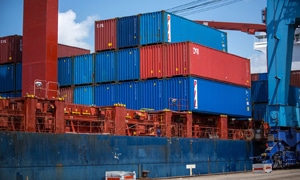How to perform the position of logistic operator successfully
The supply chain of any company dedicated to the marketing of products could not be understood without the participation, to a greater or lesser extent, of a logistic operator . He will be in charge of designing, implementing and maintaining one, several or all of the key areas of that supply cycle, which will have to culminate in the end with the delivery of the good to the customer and his total satisfaction after the purchase.
Here we tell you what functions a logistic operator faces most regularly and what types of logistic operators exist according to their area of activity. In addition, we give you the keys so that you know how to choose the best option taking into account your specific needs.
The logistics operator
Whichever logistics operator you choose for your company, you must ensure that it works to achieve the maximum efficiency and optimization of your logistics processes . That is, its objective should be no other than trying to reduce costs and deadlines , while increases simplicity and speed in this particular area of your organization.

If your activity grows and you are overwhelmed by the logistical aspects of your business, it is best to leave these in the hands of specialists. It is about outsource these tasks so that they can be developed more efficiently, while allowing you to focus on other key points of your company.
Now, how far does transfer supply chain management to a logistic operator? This is, without a doubt, a strategic decision that you must take taking into account different factors. And depending on what you decide, you will opt for one type of operator or another, with certain functions. We see everything in more detail below.
Types and functions
First, we analyze what types of logistics operators exist according to the functions they assume within the entire logistics of the company.
This classification is done taking as reference the level of integration reached by the logistics operator with respect to the supply chain of its client. And it is specified with the denomination XPL , where the X can vary from 1 (minimum integration) to 5 (maximum integration):
– 1PL ( First Party Logistics or primary logistics operators): They are the ones who only take care of the transportation of their customers’ merchandise.
– 2PL (Second Party Logistics or secondary logistics operators): Apart from transporting products, they manage storage logistics. That is, they are in charge of storing said goods for as long as necessary, using their own means.
– 3PL (Third Party Logistics or tertiary logistics operators): Going up one level we find the operators who also go into the management and control of the warehouse. They assume even more responsibilities.
– 4PL (Fourth Party Logistics or quaternary logistics operators): They are complementary to 3PL operators, since in this case they focus on supervising and validating the work done by the former. In this way, improvements, optimizations and guarantees are obtained that otherwise would not be possible.
– 5PL (Fifth Party Logisticsor quinary logistics operators): These operators are the largest and longest professional. Precisely for this reason they have the capacity to assume all the functions of the 3PLs and to add them to those of the 4PLs. This work, together and under the same command, results in total integration.
Now that you know what are the different types of logistics operators that exist, we can go on to list what their functions within the supply chain of your company can become. These are the areas in which these specialized agents can help you:
– Logistics of storage : In this first part of the supply chain, logistics operators take on tasks such as handling packages, weighing, classifying them and processing them to start the expedition.
– Transport : It is the most recognized function of all, which has to do with the movement of the goods, their delivery and the possibility of offering real-time monitoring.
– Data processing : These companies can also be very useful in providing different alternatives for the management of all logistics documentation.
– Consulting : This facet of the work of logistics operators is key to respond with security and guarantees to all sector challenges, It has to do with the improvement of technology or with the search for partners, for example.
– Additional services : In addition, a logistics operator can offer packaging, assembly, labeling, merchandising , and so on.
It could not be clearer all the value that a logistics operator can bring to your business . So do not hesitate and choose to choose the alternative with more experience, expertise and background. Discover all the services we offer in Galyco Logistic Forwarding and contact us without obligation.
